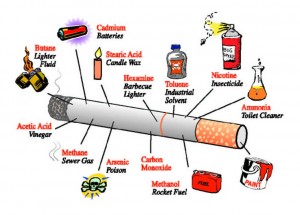Posted by Teresa on December 21, 2012 under Landlord Tips, Lease and Rental Agreements | 
 Our last post was about whether or not allowing tenants to do their own repairs is a good idea (we say, “not”). We’ve also heard about landlords who won’t allow tenants to perform their own repairs, but require them to be present while the repairs are being done.
Our last post was about whether or not allowing tenants to do their own repairs is a good idea (we say, “not”). We’ve also heard about landlords who won’t allow tenants to perform their own repairs, but require them to be present while the repairs are being done.
Of course, a tenant with a leaking dishwasher would need to be notified of the day and time the plumber is coming by. But it’s not the tenant’s responsibility to stick around to let the plumber in and to lock up when he or she leaves.
That’s the landlord or property manager’s job. It’s generally understood that the landlord, building superintendent or property manager is the go-to person when maintenance and repair people need to work on rental units. Sure, it’s convenient if the tenant is at home and can be stick around while the repairs are being done. But think about the liability issues at stake here. Having strangers entering your rental units could potentially put your tenants and their families at risk of harm. You may have no reason to mistrust your contractors, but anything can happen.
Even if your plumber or electrician is the most upstanding person in the community, some people just want to make trouble. It’s possible that a disgruntled tenant could “invent” an issue – and you could have a lawsuit on your hands. Without a witness, it becomes a case of the tenant’s word against the contractor’s word.
It might be convenient to require a tenant to be at home when repairs are being made, but it could also lead to more trouble than you bargained for. It’s better to keep things professional, and handle contractor visits yourself or with the help of your property manager.
Posted by Teresa on December 19, 2012 under Landlord and Tenant FAQs, Landlord Tips | 
 In most states, it is the landlord’s responsibility to see that repairs are made within a reasonable time. But have you had tenants offer to make their own repairs? At first, it might seem like a reasonable idea. Your handy tenant offers to paint, repair the dishwasher or replace broken glass in your rental unit. In exchange, you offer a rent reduction. You experience fewer repair hassles and out-of-pocket expenses, and he or she saves some money. Everyone’s happy and nothing could go wrong, right?
In most states, it is the landlord’s responsibility to see that repairs are made within a reasonable time. But have you had tenants offer to make their own repairs? At first, it might seem like a reasonable idea. Your handy tenant offers to paint, repair the dishwasher or replace broken glass in your rental unit. In exchange, you offer a rent reduction. You experience fewer repair hassles and out-of-pocket expenses, and he or she saves some money. Everyone’s happy and nothing could go wrong, right?
As with most all-or-nothing statements, this one is definitely wrong. There are so many possible problems posed by allowing well-meaning tenants to perform repairs.
First of all, unless they do it for a living, even the handiest people don’t come close to the quality offered by a professional. And in many cases, they can cause more damage than they fix. One landlord reported that a simple dishwasher repair was performed incorrectly, resulting in a leak that went undetected for weeks, causing extensive damage to beams and subflooring.
Then, there is the issue of who pays for what. Does the tenant cover parts and labor, or will the landlord be expected to pick up the supplies and parts? If the tenant buys the paintbrushes, and gets a rent reduction, does the landlord then own the paintbrushes? Getting everything in writing might seem like a hassle for such a small job, but you can probably imagine how not doing so could make it much messier.
Finally, landlords must consider the potential for tenant injuries. Few tenants are licensed and insured on their own, so who is responsible for any injuries that occur? One landlord we know faced the potential for thousands of dollars in damages when her tenant replaced broken glass and was seriously injured in the process. The landlord’s liability policy did not cover the losses, since the tenant was not an employee. Eventually, the case was settled, but not without a great deal of time, worry and expense on the landlord’s part.
When you’re running a business, allowing non-professionals to perform work on your building is not the best approach. The potential for problems exists throughout the process, and the end result is rarely what you expected. The same applies to the business of landlording. Think twice before you allow a tenant to make repairs!
Posted by Teresa on December 11, 2012 under Rental Market | 
 The tighter credit standards and falling housing prices that followed the housing bubble’s burst led many Americans to become renters, rather than homeowners. Now the economy is getting stronger, and new households are again forming. But increasingly, young Americans and those burned by foreclosure are opting to rent rather than buy.
The tighter credit standards and falling housing prices that followed the housing bubble’s burst led many Americans to become renters, rather than homeowners. Now the economy is getting stronger, and new households are again forming. But increasingly, young Americans and those burned by foreclosure are opting to rent rather than buy.
Yes, much of the U.S. is in a rental market boom. But in the face of a strengthening housing market, will that trend be continuing? And if rents and demand keep rising, but supply doesn’t keep up, will the pendulum swing back toward home ownership?
Analysts expect that a lack of financing as well as the supply of homes for sale will keep the rental market strong, at least in the short term. However, if rents keep going up and home prices stay relatively stable, your tenants could start checking to see if the grass is greener on the home ownership side of the street.
We are in an uncertain point of the economic recovery. Unemployment is dropping, but it is still above 7.5%. Forty percent of the unemployed have been out of work for six months or more. People don’t buy houses when they’re uncertain about their futures.
Younger people were hit hard by the economic and housing market crash, and baby boomers are retiring in huge numbers. Both of these big demographic groups could keep rental markets strong for years to come.
But once we either avoid or fall over the so-called fiscal cliff, some uncertainty will be abated—for better or worse. And what will happen if lawmakers actually start crafting policy to create jobs? Will a more concrete feel for the future embolden renters to become homeowners again?
If rents keep increasing, home ownership will look better and better—especially as wages stagnate. Many people will simply be unable to afford rising rents and will look for alternatives. Even those stung by foreclosures could buy again, especially when FHA loans become available to them again, three years after their proceedings.
Landlords and property managers, it’s clear that staying on top of what’s happening in your local market is the key to staying ahead of the competition. Adjust your rents and target your tenants accordingly.
Start your tenant relationship off right by knowing who you’re leasing to. Protect your rental property and assets with tenant background checks. Proper tenant screening will ensure you are leasing to the best possible tenants.
Posted by Teresa on December 7, 2012 under Landlord Tips, Legal | 
 The trend in rental properties is definitely swinging toward smoke-free. Tenants are demanding it, an landlords are seeing that the liability and costs associated with smoking inside rental properties makes it difficult to keep allowing it.
The trend in rental properties is definitely swinging toward smoke-free. Tenants are demanding it, an landlords are seeing that the liability and costs associated with smoking inside rental properties makes it difficult to keep allowing it.
Many tenants are sensitive to cigarette smoke. Even if you thoroughly clean the unit, paint, replace carpets and change out the blinds, some tenants will still smell the odor of the previous tenant’s smoke. It just doesn’t make for a pleasant living situation, and you could lose a good tenant over it.
Old cigarette smoke is a health risk, too. Particulates in the exhaled smoke stay around for longer than you might think. They are in the dust floating around in the air; they settle in cracks and crevices; and they set the stage for long-term health problems—particularly for children and individuals with lung or breathing issues, such as asthmatics. New studies show that it’s not just second-hand smoke that is potentially harmful. In other words, you don’t have to directly breathe in someone else’s smoke to be harmed—you could be in a room today that someone smoked in yesterday, and still be affected.
A study a couple of years ago focused on 5,000 children who lived in smoke-free residences, both detached and multi-family. It found that overall, 73% of the children were still exposed to tobacco—but those who lived in apartment buildings had much higher instances of nicotine in their blood (84.5%, compared to 70% of kids in detached homes).
The poisons and chemicals in tobacco smoke linger. They travel down hallways, and through ducting and shared walls. The long-term affects on children and other vulnerable populations are not known now. But do you want to be partly responsible for a child’s future health problems? Turning your rental apartments into smoke-free housing is good for everyone—your current tenants, your future tenants and their children, who are the most innocent victims of other people’s smoking habits.
Posted by Teresa on December 5, 2012 under Landlord Tips | 
 The rental market is hot in many areas, and vacancies are low. Many landlords are seeing more applicants for every vacant rental than they’re used to. When you have multiple tenant applicants, you can be picky about to whom you choose to rent your apartment or single-family rental home. Why rent to a problem tenant, when you have a better choice?
The rental market is hot in many areas, and vacancies are low. Many landlords are seeing more applicants for every vacant rental than they’re used to. When you have multiple tenant applicants, you can be picky about to whom you choose to rent your apartment or single-family rental home. Why rent to a problem tenant, when you have a better choice?
That’s where tenant screening comes in. You don’t have to settle for less than an ideal tenant—choose those with acceptable credit history, no criminal record and enough income to meet your standards.
Here are some dos and don’ts for tenant screening that you may find helpful:
• Do have the applicant pay the tenant screening fee by including it in the application fee.
• Don’t neglect to obtain the applicant’s signature on a separate authorization page.
• Do treat every applicant equally, by screening each one and using the same process. You could be subject to charges of discrimination if you only screen and reject certain applicants.
• Don’t forget that you have the option to check an applicant’s sex offender status, social security number, address, name, and eviction history, along with standard criminal background and credit checks.
• Do check out your screening service. Make sure it has a good reputation, and is a Better Business Bureau Accredited Business. Be sure they comply with the federal Fair Credit Reporting Act and are an FCRA-Compliant Consumer Reporting Agency.
• Don’t share information you learn with anyone.
• Don’t fall victim to any applicant’s hard-luck story. Stick to your procedures and award leases based on ability to pay the rent, acceptable credit and rental history, and clean background check.
• Do advise applicants in writing if you reject them based on credit checks. Provide a copy of the credit report.
• Don’t discriminate against applicants on the basis of family status, national origin, gender, race, religion or disability.
• Do verify employment and income. Require pay stubs, bank statements or income tax returns.
Tenant screening doesn’t have to be an overwhelming process for landlords. Stick to these dos and don’ts and feel free to contact E-Renter with any questions!
 Our last post was about whether or not allowing tenants to do their own repairs is a good idea (we say, “not”). We’ve also heard about landlords who won’t allow tenants to perform their own repairs, but require them to be present while the repairs are being done.
Our last post was about whether or not allowing tenants to do their own repairs is a good idea (we say, “not”). We’ve also heard about landlords who won’t allow tenants to perform their own repairs, but require them to be present while the repairs are being done.



